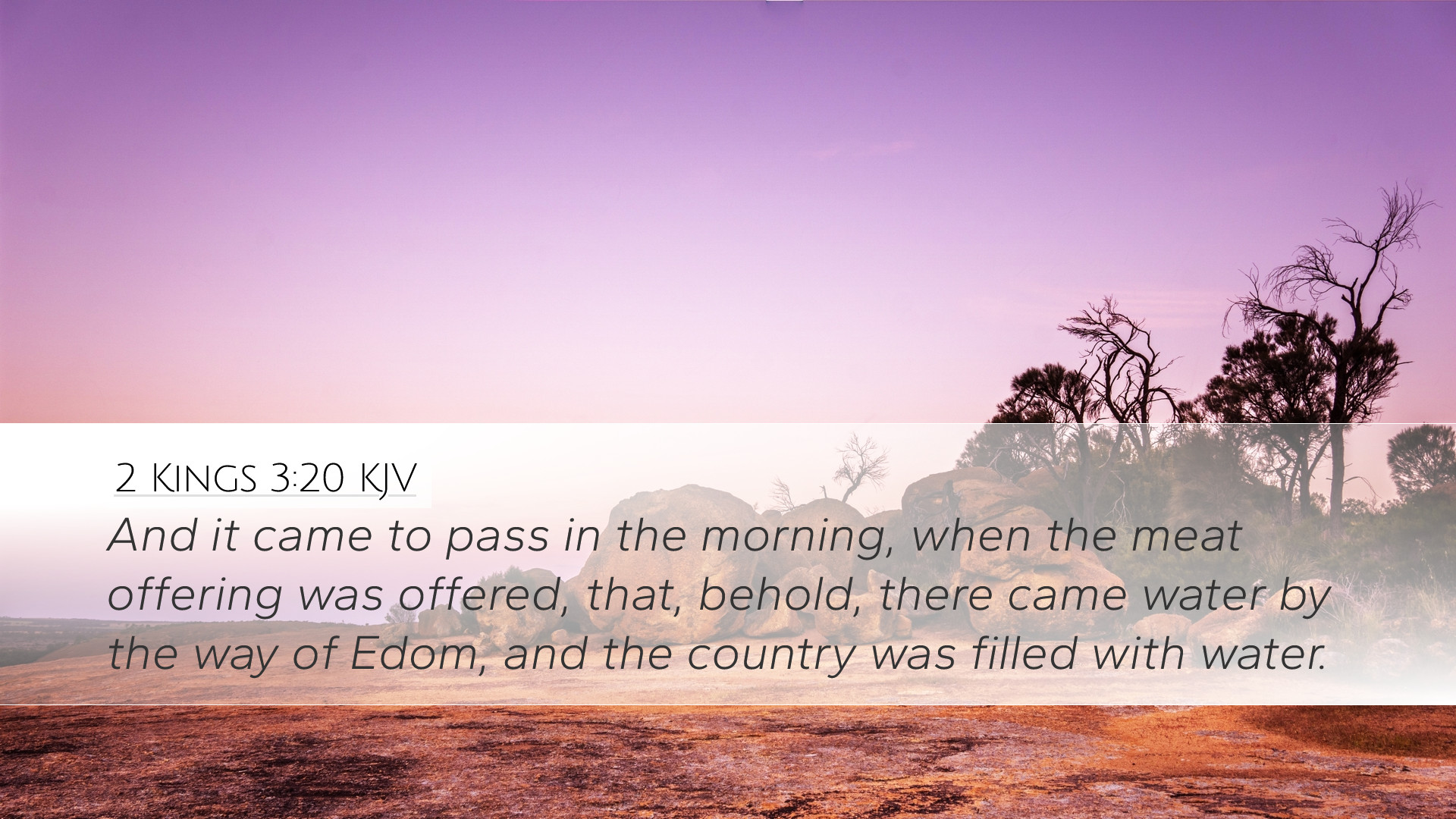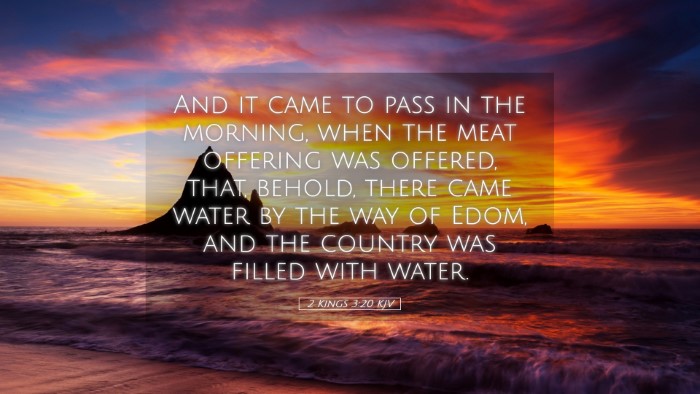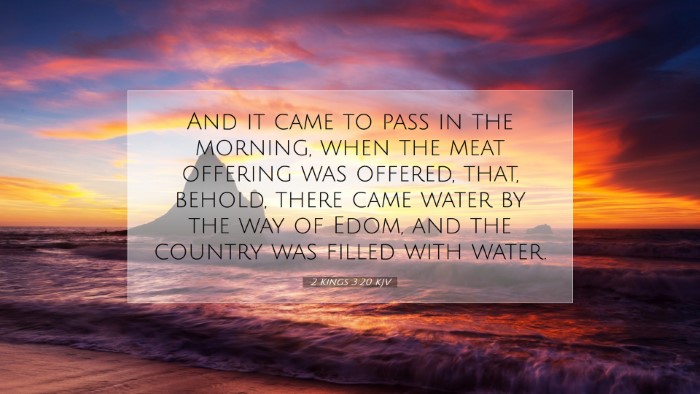Commentary on 2 Kings 3:20
Verse: "And it came to pass in the morning when the meat offering was offered, that, behold, there came water by the way of Edom, and the country was filled with water."
Introduction
This verse is situated in a larger narrative that illustrates the sovereignty of God amidst Israel's desperate circumstances. The context here is the military expedition undertaken by Jehoram, king of Israel, against Moab. The armies of Israel, Judah, and Edom faced dire needs, and it is in this setting that God's providence is remarkably displayed.
Contextual Analysis
The theme of divine intervention in human plight is prevalent throughout the histories of the kings of Israel and Judah. Here, the dire need for water serves as a metaphor for spiritual sustenance. The meat offering, a symbol of dedication and worship, becomes the backdrop for God’s miraculous supply.
Insights from Matthew Henry
Henry emphasizes the significance of the timing of God's provision. He notes that the rain came after the morning meat offering, indicating that while offerings are essential, the response of God often follows sincere worship and dedication.
Key Points from Henry:
- Divine Timing: God's help often arrives just when it is needed, highlighting His perfect timing.
- Encouragement in Despair: This moment serves as encouragement for those in ministry, reminding them that God can provide abundantly even in seemingly hopeless situations.
- Worship Preceding Provision: The act of offering precedes the miracle, suggesting the importance of dedicating our needs to God through prayer and worship.
Insights from Albert Barnes
Barnes provides a detailed scriptural context, relating this event to God's promises concerning Israel's needs. He notes that the water was an unexpected blessing from an unlikely source—the way of Edom, a region known for its desolation.
Key Points from Barnes:
- God’s Surprising Provisions: The manner in which God provided water—a stream from a barren land—demonstrates His ability to bring life from death and abundance from scarcity.
- Unforeseen Sources: God can use whatever means He chooses to fulfill His purposes, often drawing from places we least expect.
- Jubilant Absence of Preparation: The armies had not prepared for such a blessing, indicating that God’s gifts are often given despite our limited foresight.
Insights from Adam Clarke
Clarke discusses the geographical and historical implications of the narrative, asserting the significance of Edom in Israel's military strategy. He provides background on the natural occurrences in that region which would make water a treasure in such times of drought.
Key Points from Clarke:
- Historical Context: Understanding the geography and history elucidates how remarkable this miracle was; the area typically was not known for water sources.
- God's Faithfulness: Clarke reflects on this event as a testament to God's unwavering faithfulness to His people, reaffirming the covenant promises.
- Symbolism of Water: Water in the Hebrew scripture often symbolizes life, suggesting that divine intervention brings renewal and hope.
Theological Reflections
The theological implications of 2 Kings 3:20 are far-reaching. The act of offering and the subsequent provision of water are paradigmatic of God's relationship with His people. Just as He provided physical sustenance, so He desires to provide spiritual nourishment.
Core Theological Themes:
- Grace and Provision: This event points to God's unmerited grace. Even when Israel strayed, He responded to their need.
- Faith Amidst Adversity: The collective desperation of the leaders reflects an invitation for faith leaders today to recognize the importance of turning to God in times of crisis.
- Covenantal Relationship: God’s willingness to provide water serves as a reminder of the enduring nature of His covenant with Israel, which contains the promise of provision and protection.
Practical Applications for Today
For pastors, theologians, and students, the lessons from 2 Kings 3:20 entail both a warning and an encouragement. The warning is against presumption—believing we can accomplish tasks without divine assistance. The encouragement is profound: God has the power to provide for our every need, often in unexpected ways.
Divine Dependence
In our ministry and daily lives, approaching God with our needs is essential. Just as Israel was reminded to seek God first, modern believers are called to cultivate a spirit of dependence on Him.
Worship as Precursor to Intervention
In our fasting, prayer, and offerings — whether literal or symbolic — may we do so with the understanding that God’s intervention may follow soon after. Worship not only honors God but also aligns us with His will and opens avenues for His grace.
Expectation of the Unexpected
Lastly, we should maintain an attitude of expectation, trusting that God can provide answers from the most unlikely sources. Each day may hold the potential for divine surprises if we remain open to God's workings in our lives.


